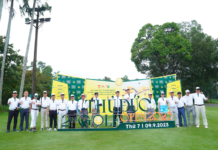[ad_1]
Microplastics contamination at beaches, lakes and channels in the central city reached serious levels with100 plastic items found in one cubic metre – up to five times higher than the average microplastic contaminated sites in the world.
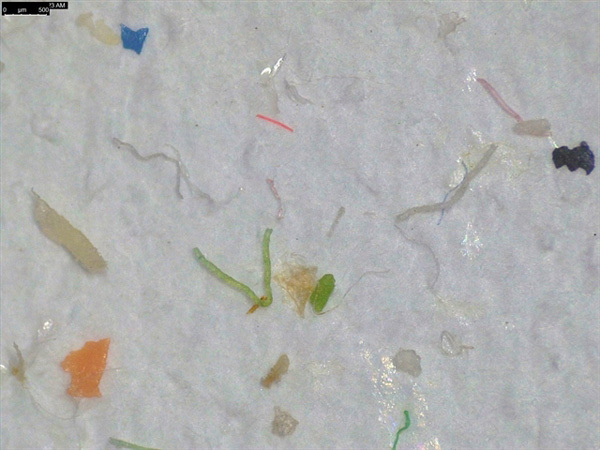 |
| Mircoplastic items are seen by microscope at laboratory. Photo courtesy Trinh Dang Mau |
A report by a group of biological scientists and researchers from the city’s Science and Education College and Dr. Emilie Strady from France has been published after a two-year investigation at the city’s beach, lakes and channels from 2018.
The report, which was published by the Marine Pollution Bulletin in October, revealed that 99 per cent of microplastics items were synthetic fiber and fishing nets adrift in the ocean.
Dr. Trinh Dang Mau said it’s the first investigation on the microplastic pollution in Da Nang before expanding the research at coastal central provinces from Thua Thien-Hue to Binh Dinh in evaluating plastic pollution.
He said synthetic fiber accounted for 99.2 per cent of the total types of microplastics in sediment samples at the two depth strata (at 5cm and from 5cm to 10 cm) that were taken from eight sites along the entire coast in the city.
A large number of synthetic fibers (81.9 per cent) were in the size range of 300 and 2,600 micrometres, which might pose a threat to marine biota and human health, the report unveiled.
Mau said microplastic items found in sediment at some lakes and Phu Loc channel were even higher with 14,000 items per kilo of sediment.
Meanwhile, 3,800 microplastic items were contained in one cubic metres of untreated waste water leaked from the city’s dump, he said.
“It’s really alarming, and the city needs urgent actions in dealing with the microplastic pollution,” Mau said.
“However, the standard of microplastic contamination has yet to be released by the city’s environment authority in identifying plastic pollution level.
“The microplatic contamination would pollute food chains of aquatic species and ecological system at lagoons, lakes, estuaries and oceans.”
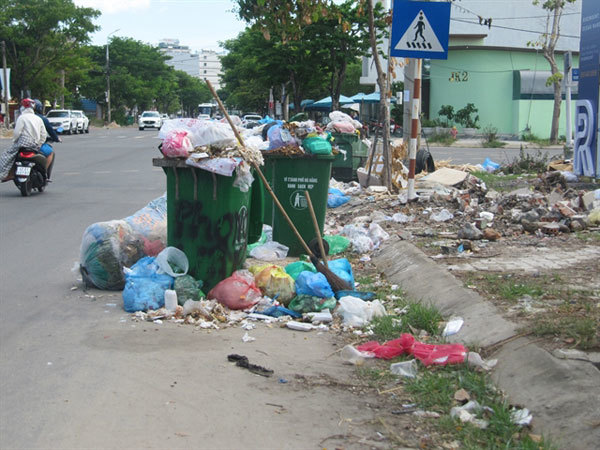 |
| Single-use plastic waste still dominates public dust bins in urban area. Untreated plastic waste will result in plastic contaminations in environment and ecological system. VNS Photo Cong Thanh |
Vice rector of the college, Vo Van Minh, a member of the group, said more research and investigations will take place in the future to find microplastic contamination in air, food and aquatic species.
He said accurate scientific reports of the group will help local authorities in the region changing policies for better environment protection and eliminating hazardous plastic product in consumption as well as single-use plastic bags and straws.
Minh said the group suggested building plastic contamination control solutions including air observation stations and water sample testing.
Da Nang has yet to build effective regulations in changing behaviour among consumers in regards to single-use plastic products, while a solid waste treatment plant is still being planned.
According to a recent survey by Greenhub, an NGO, the city discharged 1,000 tonnes of waste each day, of which more than 22 per cent was plastic.
The city developed 11 waste disposal depots (DEPO) to recycle 890 tonnes of recycled paper each month, while 800 waste collectors help classify recycled waste.
At least 3,000 tonnes of rubbish from the sea washed up on the city’s beaches after storms and flood in 2020.
Thanh Khe District in the city agreed a less plastic urban commitment with World Wild Fund-Vietnam, and businesses at the Han Market in the city began application of the 3Rs (reduce, reuse and recycle).
The city targets to limit waste to dump at under 20 per cent of total daily amount. VNS
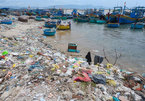
Plastic pollution a disease: experts
The way we design, produce, transform, use and dispose of plastic needs rethinking due to the vast release of the plastic waste into the ocean, and innovative circular economy approaches could be one way to go, experts have said.
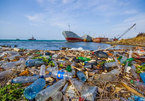
Environment ministry seeks to complete regulations on solid waste management
The Vietnam Environment Administration will be in charge of completing regulations on solid waste management in the amended Law on Environmental Protection, which will treat plastic waste as a natural resource,
[ad_2]


















